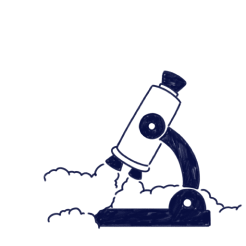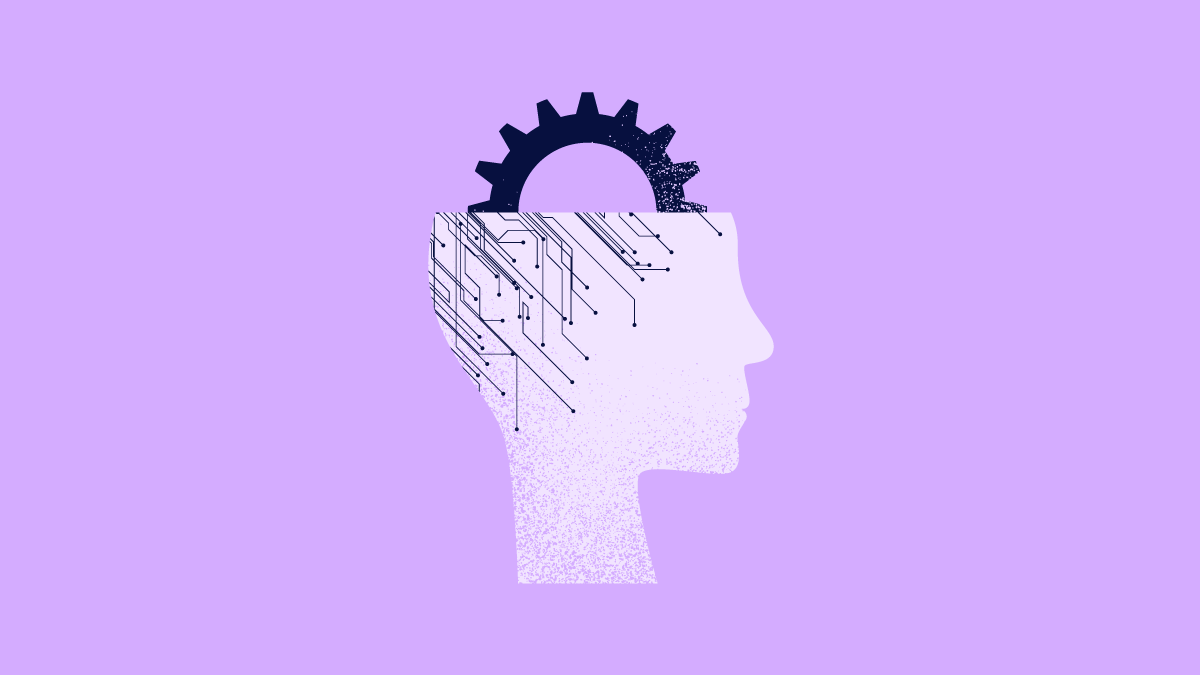
The pharmaceutical industry is rapidly evolving, and the number of AI application integrations is increasing day by day, reshaping every facet of pharmaceutical processes from drug discovery to supply chain management.
AI applications can potentially create between $350 billion and $410 billion in annual value for pharmaceutical companies by 2025. The pharmaceutical market is projected to grow at a CAGR of 42.68%, approximately equal to a $15 billion growth between 2024 to 2029.
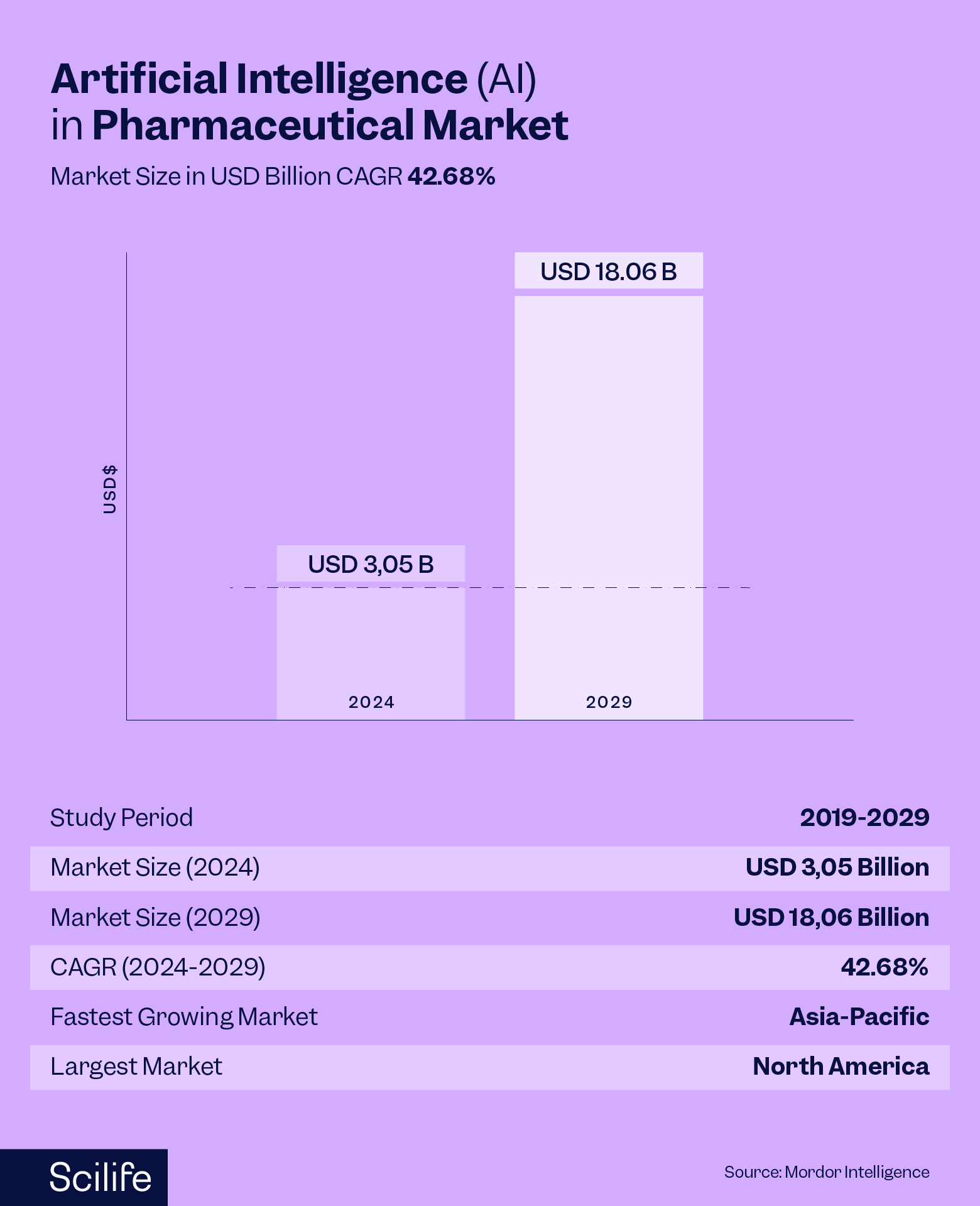
AI usage has risen rapidly in recent years. According to the latest surveys, 80% of pharmaceutical and life sciences professionals use AI for drug discovery. According to another study, AI technology reduces the time it takes pharmaceutical companies to discover new drugs from 5-6 years to just one year. If you’re not using AI, these statistics are significant enough to consider making a start!
Most Important Statistics:
AI In Pharmaceutical Industry Statistics In 2024
A survey found that 80% of pharmaceutical and life sciences professionals are currently using AI for drug discovery.
95% of pharmaceutical companies reported that they are investing in AI capabilities.
AI technology is helping pharmaceutical companies to shorten the drug discovery process from 5-6 years to just one year.
AI applications can potentially create between $350 billion and $410 billion in annual value for pharmaceutical companies by 2025.
Using AI in clinical trials could lead to cost savings of 70% per trial and timeline reductions of 80%.
A study found that AI could reduce the time to develop a drug by four years and save $26 billion.
AI technology in cancer diagnosis, for which pharmaceuticals play a major part, is projected to grow at a CAGR of 40.1% from 2021 to 2028.
As per a survey, 65% of respondents believe that AI will have the highest impact on manufacturing/supply chain management in pharmaceuticals.
The AI market in genomics (an area critical to pharmaceuticals) is expected to grow at an annual rate of 52.7% from 2021 to 2028.
Today, we will delve into the wide-ranging applications of AI in pharma, and highlight its revolutionary impacts, especially on clinical trials, the supply chain, and the drug discovery process. Alongside these innovations, we will also explore the challenges and opportunities of AI in the pharmaceutical industry.
AI is just one of the many challenges in managing a pharmaceutical QMS. Discover the other key challenges and how to stay ahead by exploring our QMS in pharma guide.
Applications of AI in Pharma
The application of artificial intelligence in pharma covers a wide range of processes, such as drug discovery, clinical trials, and supply chain optimization, where AI plays a pivotal role. Aside from improving efficiency and accuracy, these applications open new opportunities for personalized medicine and innovative therapeutic solutions.
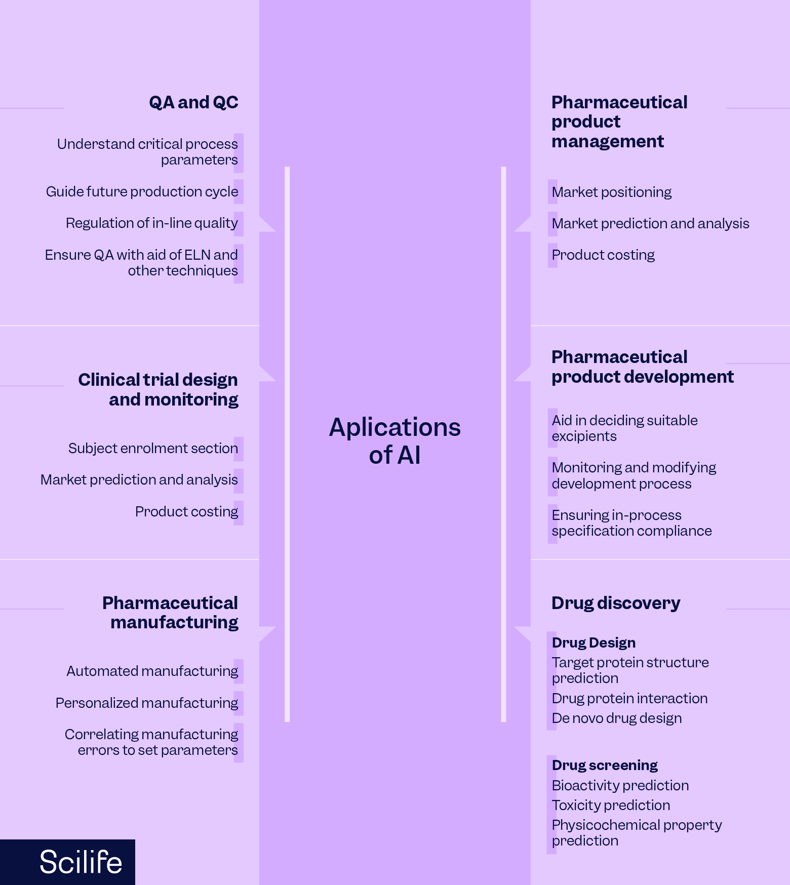
Clinical trials
AI applications enhance clinical trial processes such as patient recruitment, optimizing trial design, and real-time monitoring by analyzing vast datasets. Algorithms can efficiently and accurately identify suitable candidates. Additionally, AI can optimize predictive modeling and trial designs using advanced algorithms that accelerate the trial process, increase its precision and effectiveness, and reduce costs.
The predictive modeling method is used to predict outcomes in clinical trials. This is one of the supervised learning methods that can learn to predict patient response, treatment efficacy, or safety outcomes by training the model on historical clinical trial data, including patient characteristics, treatment interventions, and trial outcomes. This information can guide trial design and optimize patient selection.
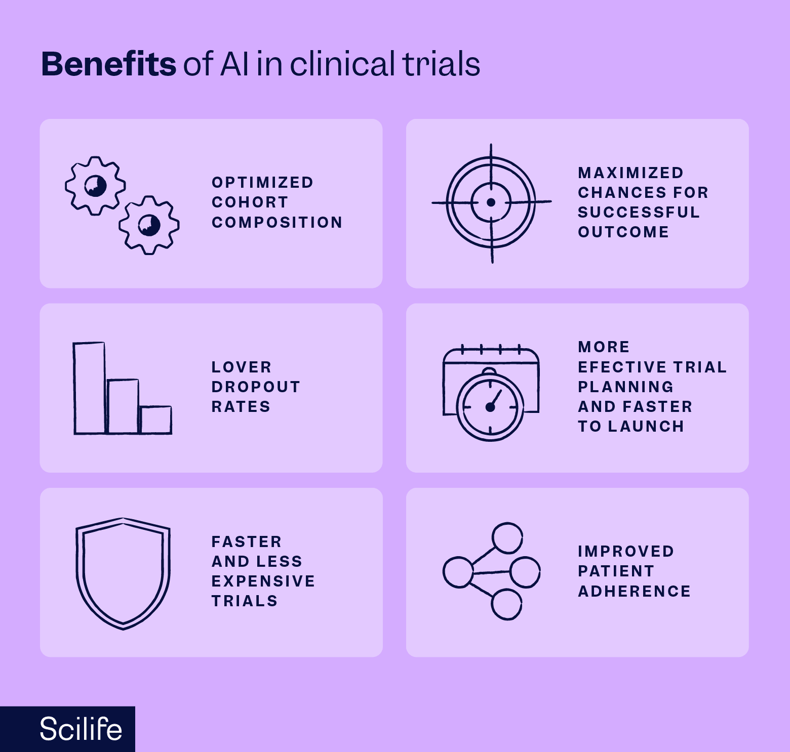
Where can AI be applied to clinical trials?
AI can help companies achieve in clinical trials across all aspects: from cohort composition to recruitment, monitoring, retention of patients, and study closeout.
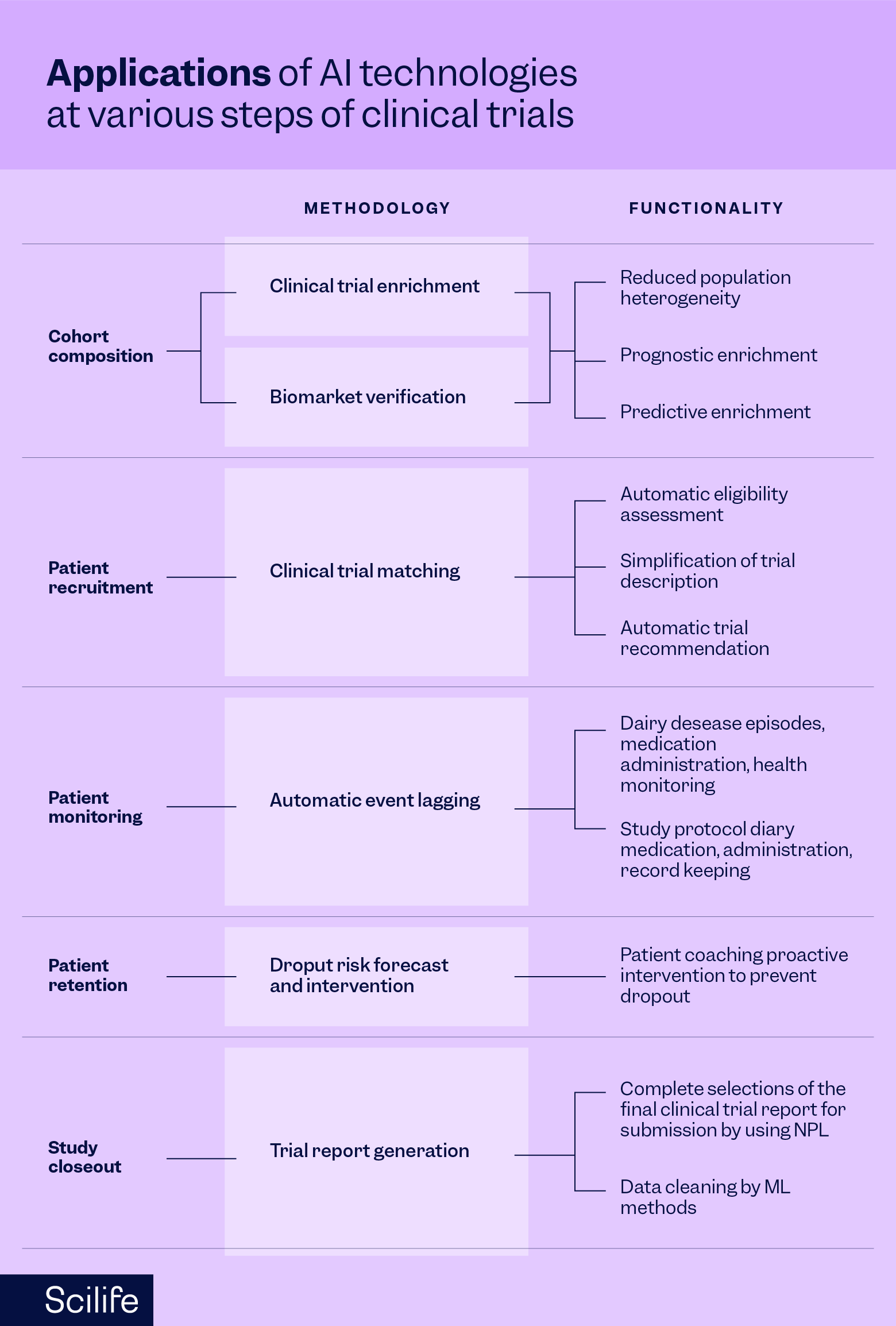
Supply chain
AI's predictive analytics model and automation capabilities play a crucial role in supply chain management. Supply chain optimization with AI integration enables forecasting demand more accurately, managing inventories efficiently, and optimizing production schedules. They also enhance quality control processes, contributing to more streamlined and cost-effective operations. This results in more efficient distribution networks, reduced waste, lower costs, and a more resilient supply chain. Additionally, AI's real-time monitoring capabilities ensure pharmaceutical products are managed and distributed effectively, maintaining the integrity of sensitive medications.
AI promises faster development and better insights, but it also introduces new risks around data integrity, validation, and regulatory oversight. This is where a GxP-compliant eQMS like Scilife helps teams govern AI-driven processes without slowing innovation.
How does AI in the drug supply chain make a difference?
End-to-end process visibility
- Spot process inefficiencies.
- Generate actionable insights in real time.
- Provide visibility for efficiency and control.
Optimizing pharma inventory management
- Keep inventory as low as possible.
- Improve decision-making based on warehousing and demand.
- Enable to plan and avoid stock-ups or shortages.
Optimize for predictive maintenance
- Produce actionable predictions.
- Orchestrate maintenance efforts.
- Maximize pharmaceutical supply chain compliance and efficiency.
Medicine demands forecasting, logistics, and stock management
- Demand forecasting and proactive manufacturing.
- Manage transportation capacity and plan accordingly.
- Advanced transportation management (cold chain).
Smart automation
- Generate strategic insights from IoT sensors.
- Automated quality assurance with sensors and cameras.
- Increase operations accuracy, repeatability, and throughput, while reducing human errors and improving quality and compliance.
A secure process that is resistant to counterfeit
- QA for every single batch.
- Automated quality and compliance systems.
- A secure system, shielded from counterfeit and substandard drugs.
Drug discovery
AI's most significant impact in pharma is in drug discovery, as it accelerates the identification of potential drug candidates and optimizes molecular design. By analyzing biological data, AI helps in predicting drug efficacy and safety profiles, shortening the time from laboratory to market.
The first stage of drug discovery typically takes up to six years. On average, it takes at least five more years to complete the next stage of clinical trials. In this time frame, only five out of ten thousand initially tested candidates for new drugs make it to clinical trials. During the drug design process, only one medical product out of ten enters clinical trials and is approved by the FDA for use on patients.
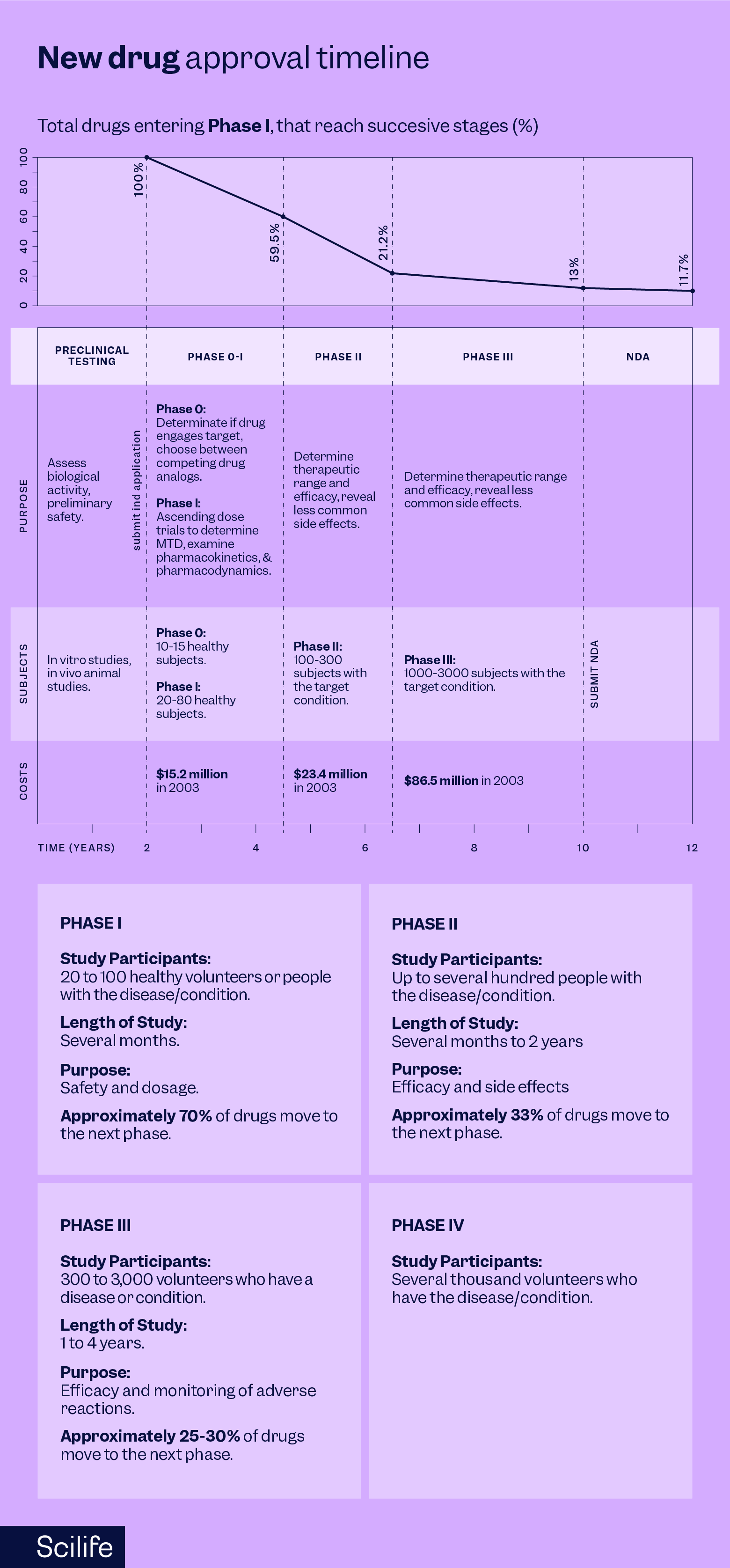
AI is revolutionizing drug discovery by enabling virtual screening, molecular modeling, and predictive analytics. These AI models can analyze vast amounts of chemical and biological data to identify potential drug candidates, optimize lead compounds, and predict their properties. Ultimately AI-driven approaches lead to more efficient and effective medications.
Popular AI model tools
The field of drug discovery has seen significant advancements with the use of AI model tools. Here are some of the popular AI model tools used for drug discovery:
- DeepChem
- RDKit
- ChemBERTa
- GraphConv
- AutoDock Vina
- SMILES Transformer
- Schrödinger Suite
- IBM RXN for Chemistry
- scape-DB
- GENTRL (Generative Tensorial Reinforcement Learning)
10 AI models that are commonly used in the pharmaceutical industry
- Generative Adversarial Networks (GANs)
- Recurrent neural Networks (RNNs)
- Convolutional Neural Networks (CNNs)
- Long Short-Term Memory Networks (LSTMs)
- Transformer Models
- Reinforcement Learning (RL)
- Bayesian Models
- Deep Q-Networks (DQNs)
- Autoencoders
- Graph Neural Networks (GNNs)
Challenges and opportunities of AI in pharma
Artificial intelligence brings both challenges and opportunities to the pharmaceutical industry. In one sense, AI accelerates drug discovery, improves clinical trials, and optimizes supply chains, resulting in greater efficiency and innovation. However, it also poses challenges that bring along significant hurdles and limitations, such as:
- Lack of transparency
- Lack of data availability
- Biases in data
- Data Inability
- A limited ability to account for variability
- Interpretation of the results
- Consideration of ethics
- Biological systems with complexity
- A lack of clinical expertise
- Inactive Molecules
Therefore, AI-based models should be used in combination with traditional experimental methods to ensure the safety and efficacy of drugs. As data availability, deep learning algorithms, integration with other modeling approaches, and computational power have improved, these challenges have been rapidly addressed. Misreported data, however, continues to pose a persistent problem, introducing bias and distorting the accuracy of AI models. As a mitigation measure, we should adopt FAIR data principles (Findable, Accessible, Interoperable, Reusable), which align with ALCOA principles (Attributable, Legible, Contemporaneous, Original, and Accurate). By adhering to these principles, data quality can be improved, enhancing the reliability of AI-driven analyses.
Conclusion
To sum up, artificial intelligence is reshaping the pharmaceutical industry, enabling breakthrough advancements and efficiencies. Although the journey will be challenging due to data privacy and ethical concerns, in addition to the need for specialized skills, the potential benefits could be tremendous. The pharmaceutical industry can reap the full benefits of artificial intelligence by addressing any challenges that may arise along the way and harnessing its incredible potential. In the future, this will revolutionize drug development, improve patient outcomes, and lead to a more efficient and innovative healthcare system.
Discover how Scilife Smart eQMS can help you face the upcoming AI-related challenges!








